#chog
Text
Hey look I've coloured The Last Hours spine art!
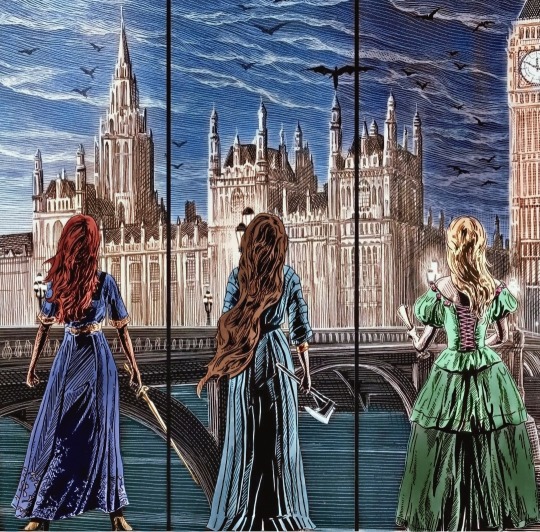
#I'm slightly bored as you see#cordelia carstairs#lucie herondale#grace blackthorn#tlh#the last hours#tsc#cassandra clare#the shadowhunter chronicles#chain of thorns#chog
607 notes
·
View notes
Text
”we need more complex female characters“
y‘all couldn’t even handle her

#grace antis DNI#grace blackthorn#cassandra clare#chain of thorns#tsc#chot#tlh#the last hours#shadowhunters#choi#chog#gracetopher
309 notes
·
View notes
Text
In TID Gabriel says that Gideon is an unsung comic genius and I think he 100% passed that on to Thomas.
That boy is the funniest mf in the series omg.
A child raised by him AND Alastair Carstairs? The comedic power it would hold.
#chain of thorns spoilers#thomas lightwood#thomastair#alastair carstairs#chot#chot spoilers#chain of thorns#tlh#the last hours#chog#chain of gold#choi#chain of iron#the shadowhunter chronicles#tshc#gideon lightwood#gabriel lightwood#cordelia carstairs#james herondale#will herondale
871 notes
·
View notes
Text
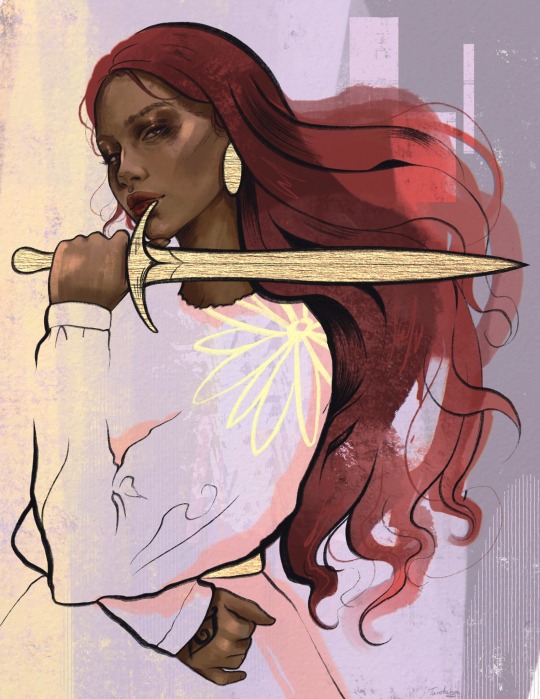

Cordelia Carstairs 🌼
“Daisy”
📖~@cassandraclare
#tsc#I’m just in time for Chain of Thorns!#shadowhunters fanart#shadowhunters#the shadowhunter chronicles#cordelia carstairs#jordelia#heronstairs#james herondale#chain of gold#chog#chain of iron#chain of thorns#the dark artifices#tda#tmi#the mortal instruments#the wicked powers#the last hours#tlh#cordelia Carstairs fanart#Cassandra Clare#fanart#shadowhunters chronicles#book illustration
1K notes
·
View notes
Text
It wasn't a competition but they won anyway
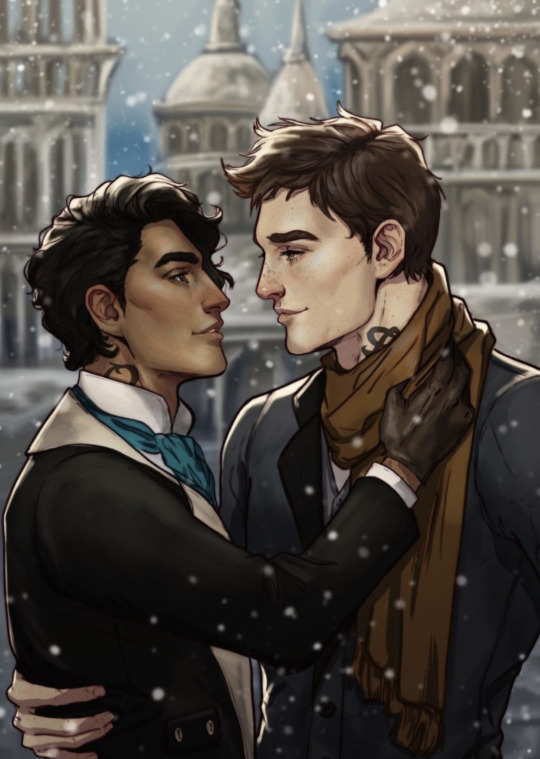
#chain of thorns#chot#the last hours#tlh#thomas lightwood#alastair carstairs#thomastair#chain of gold#chain of iron#chog#choi#the shadowhunter chronincles#tsc#cassandra clare#chot spoilers#chain of thorns spoilers
924 notes
·
View notes
Text
R.I.P Matthew Fairchild and James Herondale. You guys would love Dead Poets Society.
#tlh#mathew fairchild#james herondale#chain of gold#chain of iron#chain of thorns#the last hours#tsc#the shadowhunter chronicles#chog#chot#choi#they are so Neil and todd!
55 notes
·
View notes
Text
something about james herondale flirting with cordelia carstairs (while still the wearing the bracelet) sometimes gets me more than his love declarations.
Chain of Gold:
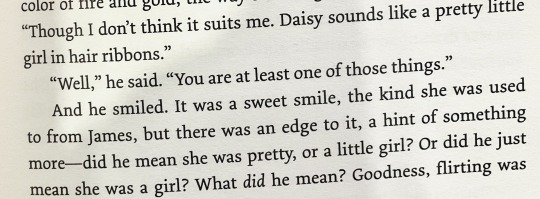
Chain of Iron:

#damn their cute flirting#jordelia#herondaisy#cordelia carstairs#james herondale#chain of thorns#chain of iron#chain of gold#chot#chog#choi#the last hours
116 notes
·
View notes
Text

Still haven’t gotten up the motivation to finish my chain of gold pin set, so I’m sharing these unfinished Lucie and Jesse pins while I stew.
#chain of gold#chain of iron#chog#lucie herondale#jesse blackthorn#james herondale#cordelia carstairs#alastair carstairs#myart
266 notes
·
View notes
Text

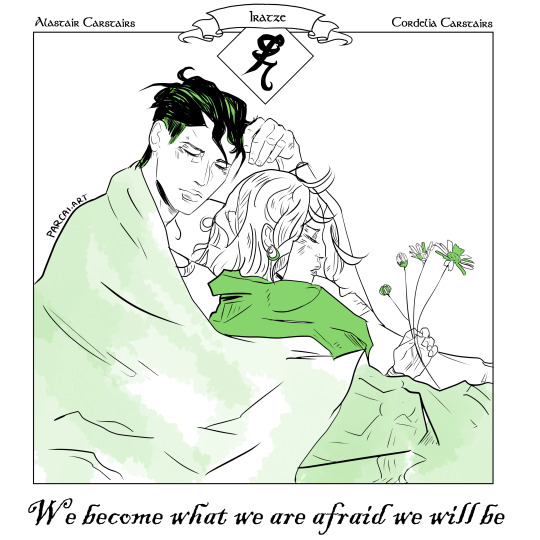
Rune Series: Set 1/6. On beginnings. (All rune sets).
The first rune Shadowhunters receive (sight) and one of the first they learn for survival purposes (healing). Clairvoyance represents Jesse's exclusive visibility to Lucie. As a ghost, Jesse's confined to the box, and thus his flower has wilted. As for the Carstairs siblings, they just deserve time to recover and grow after all they've been through. 😔
Characters by @cassandraclare. This series was largely inspired by some studies I was doing of cassiejp, so credit to her for that ofc.
#artists on tumblr#kit art#carstairs siblings#blackdale#jesse blackthorn#lucie herondale#cordelia carstairs#alastair carstairs#tsc#choi#chog#tlh#the last hours#chain of iron#chain of gold#the shadowhunter chronicles#fanart#k#q#draft dump#rune series
353 notes
·
View notes
Text
Reading chain of thorns is not a want, it's a need. Never have I been so anxious for a book before
#chot#chain of thorns#cassandra clare#james herondale#cordelia carstairs#cordelia herondale#lucie herondale#jesse blackthorn#grace blackthorn#christopher lightwood#kit lightwood#thomas lightwood#alastair carstairs#choi#chain of iron#chog#chain of gold#tlh#the last hours
230 notes
·
View notes
Text
I swear, I can re-read THOSE 5 pages of the Whispering room endlessly...
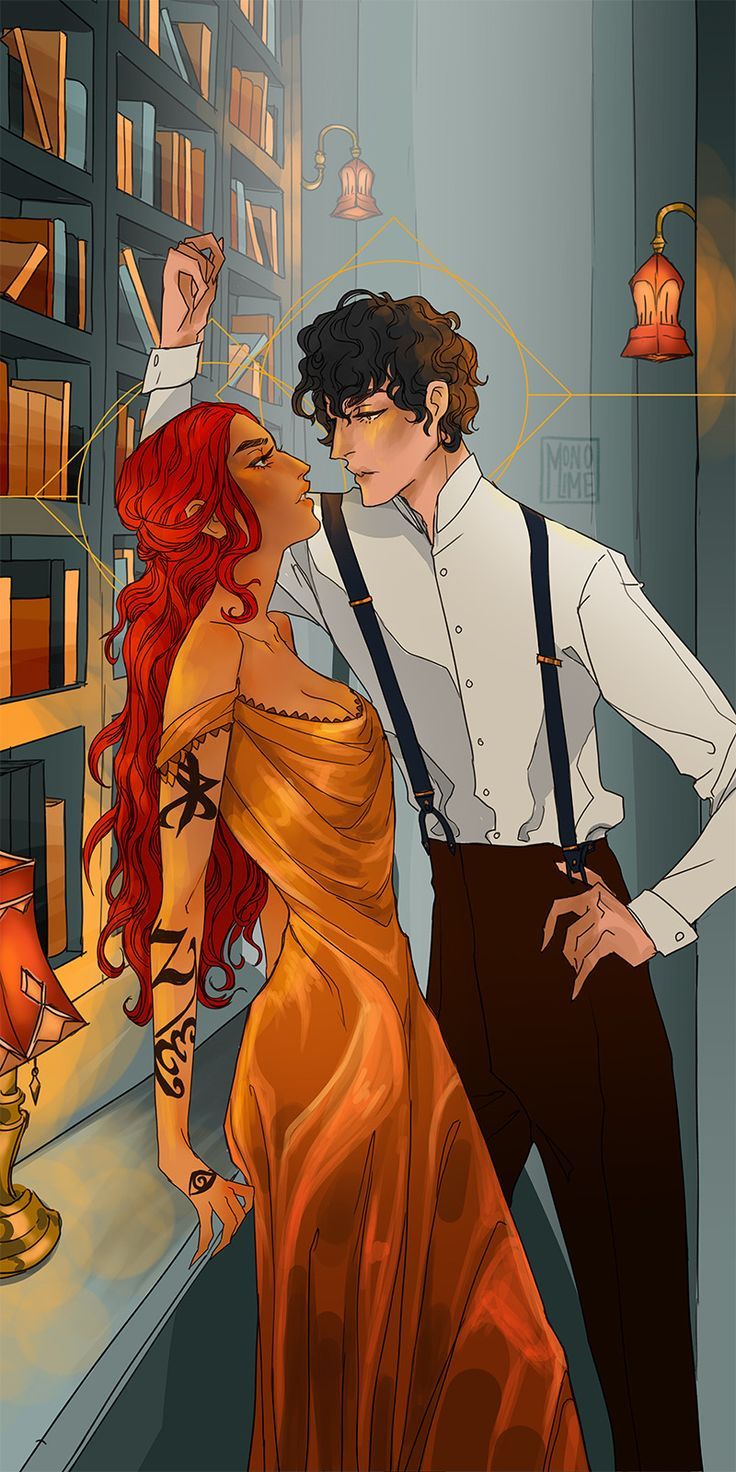
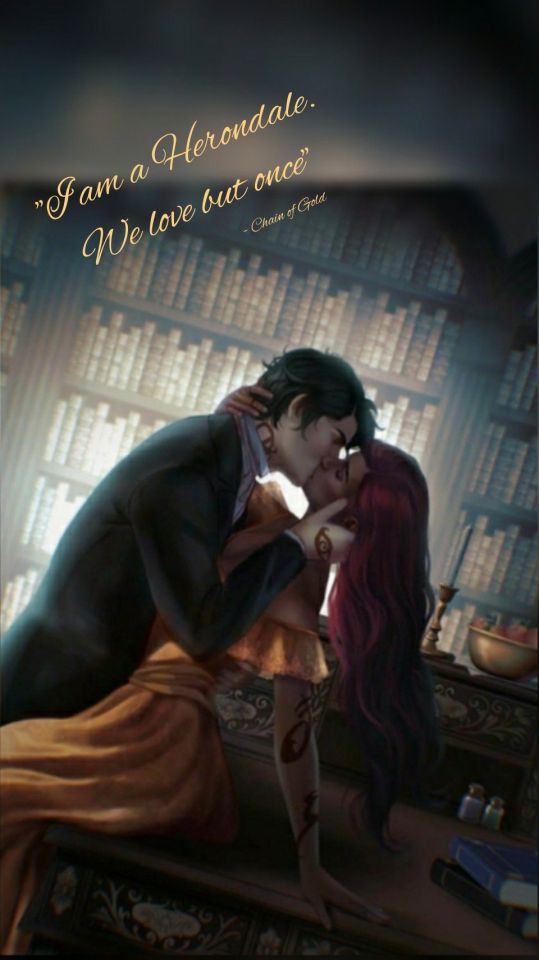
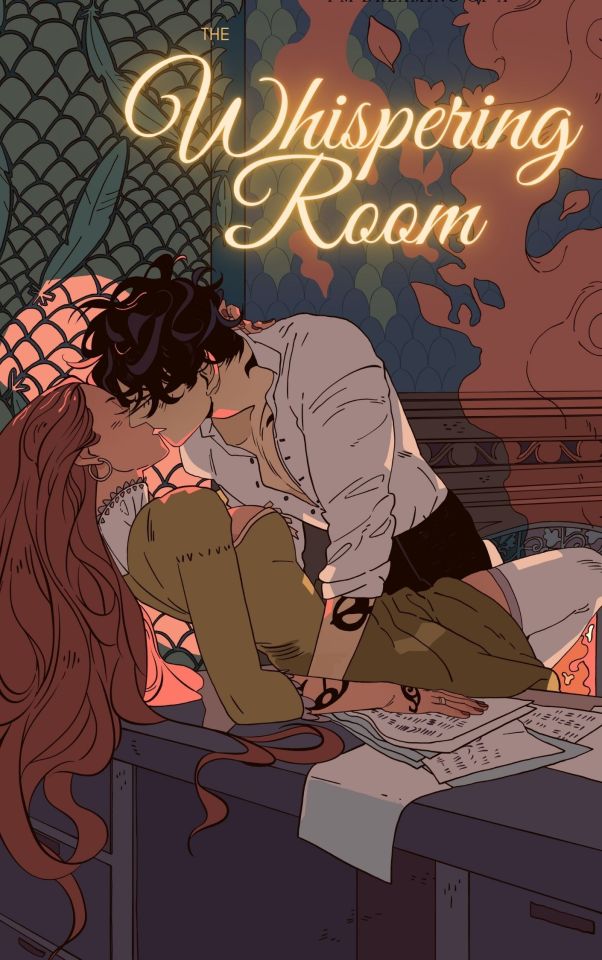
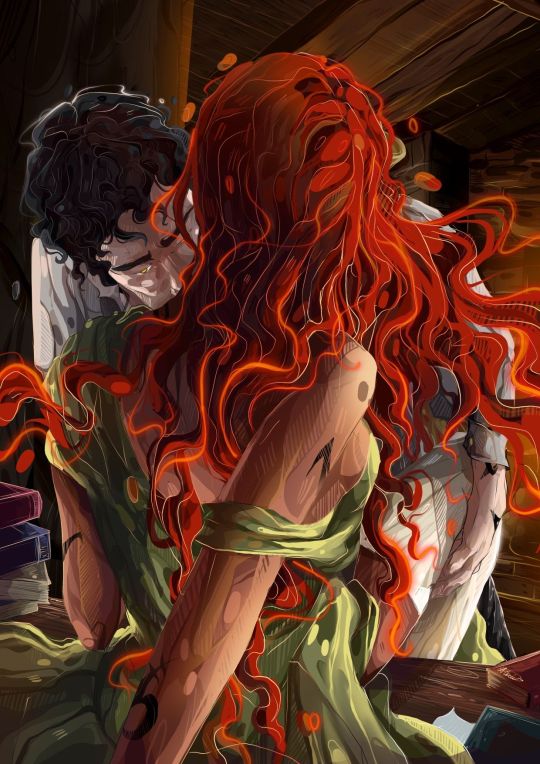
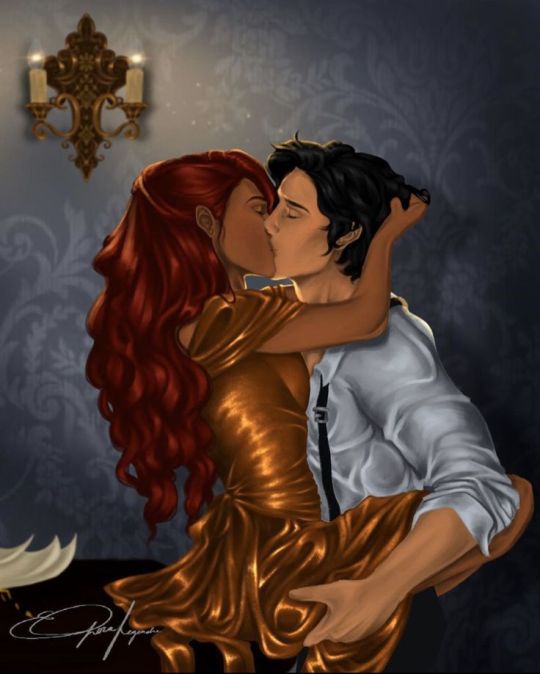
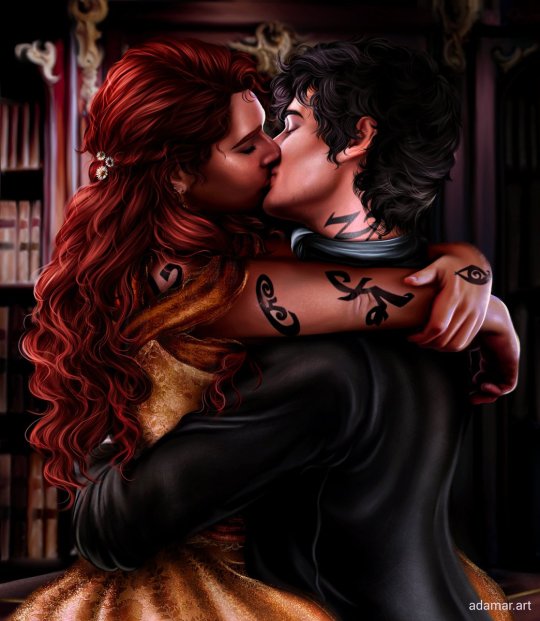
My gorgeous beloved babies
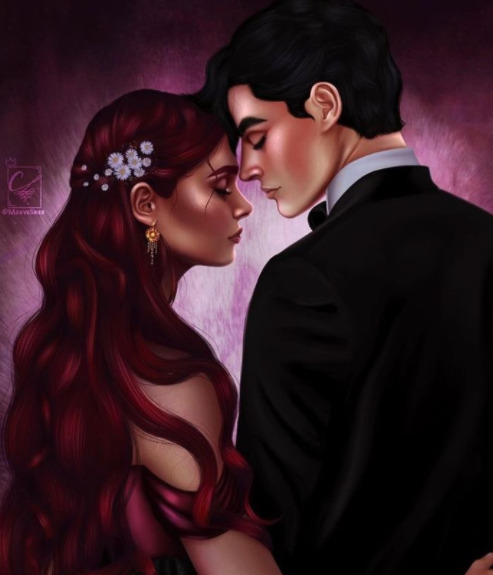
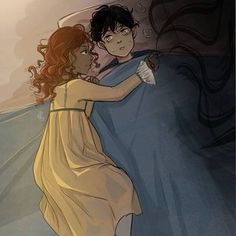
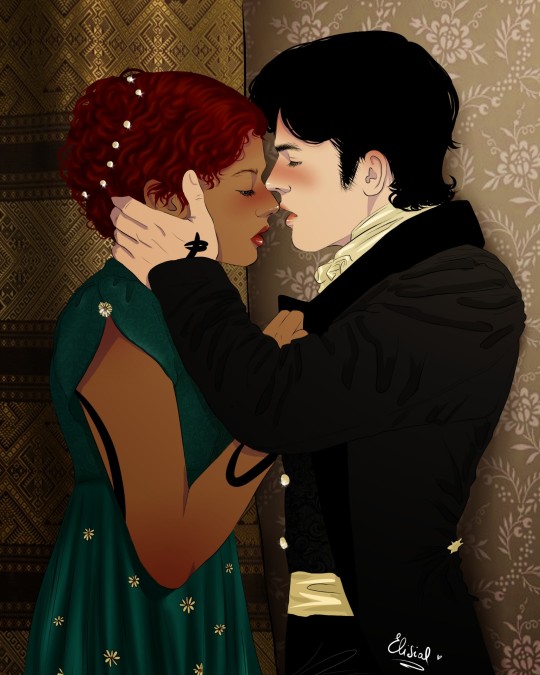

#herondaisy#james herondale#cordelia carstairs#jordelia#tlh#chog#cog#the last hours#chain of gold#the whispering room#the shadowhunter chronicles#tsc#shadowhunters#shadowhunters fan art#shadowhunters chronicles#shadowhunters fanart#otpsource#the shadowhunters chronicles#books#bookish#cassandra clare#reading#reading the book#james morgan henry herondale
200 notes
·
View notes
Text
Matthew Fairchild in this
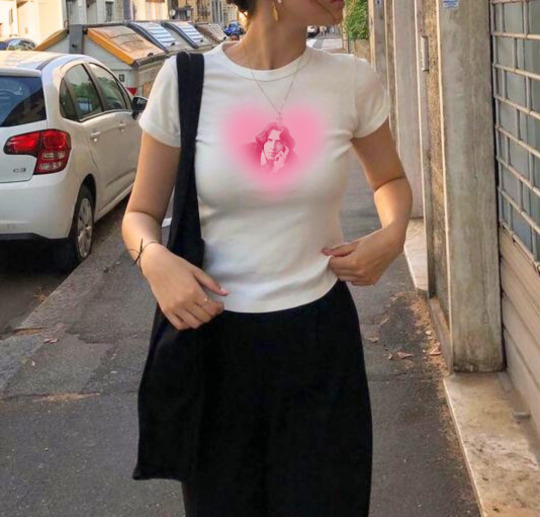
#matthew fairchild#the last hours#tlh#cassandra clare#tsc#shadowhunters#chain of thorns#chot#chog#chain of gold#chain of iron#choi#oscar wilde#literature
60 notes
·
View notes
Text
I'll Stare Directly at the Sun but Never in the Mirror: Literary Foils, Matthew Fairchild, and Alastair Carstairs
Hello, hello, and welcome to my academic dissection of two of my all-time favourite fictional characters. I, your fearless host, will be giving you insight into Matthew and Alastair as literary foils, the ways that their arcs mirror each other, and the ways that they're two sides of the same traumatised little coin.
So, without further ado, let's start with the basics. This post is super long, so it's going under a cut.
People in the World Like Us
It bears noting that Matthew and Alastair have several superficial similarities and differences,
One of these similarities is that they are both men who love men (MLM). Unlike Charles, who is deeply filled with fear and shame, both Matthew and Alastair seem to be comfortable with being bisexual and gay (respectively) as of 1903.
Alastair is not flashy about it. He's not formally out, but he's also hiding nothing. He's just 5'10, likes hedgehogs, has dark hair, is gay, and likes music. There's 0 shame, but there's also no advertising it.
Matthew is much flashier. He's very openly MLM, even if he is not formally out to those who are not close to him. He wears Oscar Wilde's green carnation, which is indeed simply a symbol of the aesthetic movement. However, it was also so heavily associated with MLM during the time period that it'd be a fairly clear tip-off to those with any perceptive skills whatsoever. He attends salons frequently associated with LGBT culture; he openly flirts with both men and women.
Alastair also seems to seek out long-term partnerships with Charles and then, later, with Thomas. (Huge upgrade!) Matthew, on the other hand, has casual relationships frequently.
These attitudes toward their respective sexualities also seem to parallel their personalities more generally as they are written in the text. Alastair is introverted and closed off; Matthew is extraverted and free-spirited.
I will discuss both of the above points more later.
However, for now, I find this more interesting because this is the first thing that Alastair says to Matthew in Nothing but Shadows:
"You new boys have barely been here five minutes, and all you can find to talk about is some mundane who got sent to prison for indecency?"
"So you know Oscar Wilde too, Alastair?" Matthew asked.
[...] "I know of many mundane criminals," Alastair Carstairs said in chilly tones. "I read the mundane newspapers to find hints of demonic activity. I certainly don't bother reading plays."
In fact, it's the first thing he says at all!
Alastair clearly is not yet comfortable with being MLM, though he does get there by Chain of Gold. Matthew, on the other hand, is visibly MLM. This immediately establishes a power dynamic between someone who is by all initial appearances a homophobic straight man and a flamboyant, visibly MLM character who needs to defend the idol who shares his sexuality.
It's at this point that Matthew gets visibly agitated and begins to defend Wilde, who was almost certainly bisexual like Matthew:
"Naturally. What use do sad, unimaginative little people have for plays?" he asked. "Or paintings, or dancing, or anything that makes life interesting. I am so glad to be at this dank little school where they will try to squeeze down my mind until it is almost as narrow as yours."
This begins a conflict that will escalate over the course of the series. The initial source of their contention stems from their different reactions to a quality that they share.
Mad, Wonderful, Colorful Things
This interaction does not just set up a conflict because Matthew is hurt at the barb about his sexuality. It also shows their relationships to art. That's what I will aim to unpack in this section.
Matthew is undeniably an Art aficionado. His constant obsessive discussions of Oscar Wilde are proof enough, but he does tend to talk about art spectatorship and appreciation for Beauty a lot as well. In Nothing but Shadows, he talks about his lack of artistic prowess, but says that he could 'spectate for England.' To this, James tells him that he could be an actor.
Matthew is, in and of himself, a work of art; he dresses himself up, values his stylish clothing, and affects a theatrical air in most social settings (to the point that he made his Grand Sober Debut in Chain of Thorns while dressed as Puck from A Midsummer Night's Dream.)
Matthew is enchanted with Downworld and with magic. He dances with the fair folk; he has seemingly had both friendships and sexual relations with multiple Downworlders. He attends poetry readings and artistic salons with these Downworlders, has put on performances at the Hell Ruelle before (with Kellington, who notes that they have recited poetry together).
Matthew openly- very openly- adores art in all of its forms. James casually notes that a sleeping Matthew looks like one of the cherubic, innocent paintings he adores in Chain of Gold. Matthew and art are inextricable.
But what of Alastair?
Alastair, too, admires art. He once played the piano, and he once sang ghazals. The difference is that while Matthew was encouraged by those around him to love the things he loved, Alastair quite literally had that beaten out of him while at school. Alastair eventually was so ashamed of his Persian heritage that he stopped singing ghazals (and dyed his hair to look like- you guessed it- Matthew's). He was treated so poorly that he completely disengaged with art in general despite deeply loving it.
(As an aside: I'm so glad that he has become more comfortable making music again. I really hope that he continues to nurture that as an adult in a safe and stable home).
In any case:
Matthew's artistic nature was nurtured; Alastair's was a casualty of abuse. This brings Alastair's comments about plays and Wilde's work to light a bit more - it is probable that there's a bit of deflection happening.
The specific targeting of plays is also interesting when you consider the following interaction:
“I know we’re supposed to avoid mundane things,” said Alastair, “but you must see this. It’s a film. A moving picture! This one is the latest. It’s called Le Voyage dans la Lune.”
Two years after graduating from the Academy, while on his travel year and away from Elias, Alastair was finally allowing himself to engage with art again. Intrinsically, it is clear that he still loved performances; he just closed himself off from this love to protect himself against abuse.
Tricks and Papas and the Circumstances of Your Birth
It's not a secret that Alastair was a bully in school, though it is critical to emphasize that he tried everything in his power not to be. This is true to the point of allowing himself to be physically abused by the other students for an entire year:
“When I got to school,” said Alastair slowly [to Thomas], the effort clearly costing him, “loose talk about my father had preceded me. Everyone knew he was a failure, and some of the older students decided I was an easy target. They… let’s just say that by the end of the first week, I had been made to understand my place in the hierarchy, and I had the bruises to remind me should I ever forget. [...] After about a year of being knocked around [...] I realized I could either become one of the bullies, or suffer for the rest of my school days."
When he told Cordelia about this in Chain of Gold, she inquired about why Alastair did not simply come home.
Coming home was, unfortunately, not an option for Alastair, as he faced abuse there as well. I could pick several Chain of Iron quotes, but I'll simply go with Chain of Gold's:
“Because I wanted you to have a childhood, a thing I never had. I wanted you to be able to love and respect your father as I never could. Every time he made a mess, who do you think had to clean it up? Who told you Father was ill or sleeping when he was drunk? Who went out and fetched him when he passed out in a gin palace and smuggled him in through the back door? Who learned at ten years old to refill the brandy bottles with water each morning so no one would notice the levels had sunk—?”
So, Alastair did everything he could so he would not need to go home to an abusive environment.
Matthew is, as usual, Alastair's equal and opposite reaction.
"Maybe it's the fact you have everything I want," Matthew snarled [to James]. "And you don't even seem to want it. [...] They will send you home any time you like," Matthew said. "They're trying to drive you away. And no matter what I do, they won't chuck me out. Not the Consul's son. [...] I want to go home, all right?" Matthew snapped. "I want to be with my father!"
The very reason that Alastair cannot go home is the reason that Matthew feels that he absolutely must.
Matthew later muses in Cast Long Shadows:
His papa was the best papa in the world, so Matthew had no opportunity to be cruelly oppressed or sadly neglected.
Matthew's love for his family and perception of them as a kind, nurturing presence makes it impossible for him to understand Alastair. This is true to the point that he empathizes with Elias in his obvious neglect of Alastair at the Academy, stating that if he had "an insufferable toad of a son, and were he blessedly to be sent away to school, [he was] not sure [he] could bring [him]self to blast [his] sight with his visage until the accursed holidays carried him back to [him] again.”
Like with Alastair's bullying being a survival response, it is important to note that Matthew does not have all the information here. And yet, it perpetuates the pattern: Matthew cannot conceptualize the idea of an abusive home.
The irony? Matthew himself is a parentified child, just as Alastair is (though, obviously, without the other layers of purposeful abuse). He just doesn't realize it. Look:
[Parentification] occurs when parents look to their children for emotional and/or practical support, rather than providing it. Hence, the child becomes the caregiver. As a result, parentified children are forced to assume adult responsibilities and behaviors before they are ready to do so. In addition, they do not receive acknowledgment or support for taking on these responsibilities. (Quote from Newport Academy)
And Matthew:
"I have put out fires on my own father's head. My mother is always busy, and Charles Buford is always running after her and acting superior. I'm the one who takes care of my father. I'm the one who listens to him. I didn't want to go away to school and leave him, and I've been doing all I can to get chucked out and go back."
Matthew behaved terribly, refused to do training exercises, and ultimately blew up a part of the school at least in part because he wanted to go back to this situation. Unfortunately, as he has been doing this all his life, it seems normal to him. He doesn't think of it at all beyond loving his father and needing to take care of him.
So Alastair has a terrible relationship with an abusive father. Matthew has an outwardly-great relationship with an absentminded but loving father that he himself does not realize he has a backwards relationship with. Combine that with his mother and brother always being negligent, and we don't have a recipe for a great home situation.
No one notices that there is a problem in either Matthew's or Alastair's case.
Anyway, this brings us to The Incident. Matthew, to Alastair:
“Has no kind soul thought to inform you that your hairstyle is, to use the gentlest words available to me, ill-advised? A friend? Your papa? Does nobody care enough to prevent you from making a spectacle of yourself?"
Matthew didn't intend to hit Alastair where it hurt, but he did nonetheless. Alastair is aware that his father does not love him, or at best has a destructive and abusive 'love' for him. He is aware of and understands his own abuse and parentification. He also understands that no one treats him with care, and Matthew hit the pain button hard.
It's in this moment that Alastair decides to strike Matthew back just as hard. He tells him that he is Gideon Lightwood's bastard, that Henry is not, in fact, his father. Matthew's relationship with Henry, whom he loves as a central tenant of his life, is seemingly called into question.
It is no surprise that he cannot forget. It is no surprise that he, an emotionally volatile boy who literally exploded a wing of the school because of the rage that he had at that comment, may take drastic action to ensure that Henry Fairchild was, in fact, his father.
You can read more on this here, but Alastair became a sort of scapegoat for Matthew after he unwittingly caused his mother's miscarriage. The reason for this is that he, Matthew, simply could not cope with such a heavy burden on his own.
And that's also when the drinking started.
A Noted Handler of Drunks
Alastair is the child of an alcoholic. We see the trauma this has caused him in the earlier quote about wanting Cordelia to have a childhood, but we also see the impact of this in his direct interactions with Elias in Chain of Iron. A couple of examples:
Elias looked at his son. He did not hold out his arms, as he had to Cordelia, but his voice was thick with emotion when he spoke. “Come and greet me, Esfandiyar,” he said. It was Alastair’s middle name. [...] Alastair didn't move.
[Alastair's] father’s face was beet red, and he seemed to have worked himself up into something of a lather. [...] He slammed his hand against the floor.
“Does he—” There was a sharp sound, as of something being knocked off a table, and then the familiar noises of Elias retching. Cordelia could hear Alastair telling James to go, that he would manage it.
But Alastair looked more than long-suffering. His gaze was focused on their father with a barely contained loathing.
This is, of course, far from all of them. We also get an entire Alastair PoV scene where he is grieving in a hard, cold way not only for Elias, but also for his own childhood:
Alastair stood in the parlor, staring blankly out the window at the house next door. He had been watching two little boys playing on the floor of their living room while their mother worked at her embroidery and their father read the newspaper. He could not help but hear his mother’s words as she’d wept, The child will never know his father. Lucky child, he’d said to Cordelia, but under the flippancy, there was a hard, cold sorrow, a sorrow that felt like a blade of ice cutting through him. It was hard to breathe around the loss.
And, as Cassie said at her 2020 St. Louis Chain of Gold panel, Alastair- the child of an alcoholic- has the same level of PTSD as a war veteran.
It is Elias who forced him to grow up at age 10. It is Elias who made him feel worthless. It is Elias who initially abused him, just as it was Elias who sent him off to Shadowhunter Academy to face more abuse. This school abuse was in large part because of Elias's own behavior as well as because of Alastair's brownness (that white Elias failed to consider despite his entire family being made up of PoC). And, as we established, it is Elias's fault that Alastair cannot go home.
Now, Matthew unfairly blames Alastair for something that is squarely the fault of the adult faerie that used him as a tool to try to assassinate the Consul. It is in this moment that Matthew begins his descent into alcoholism:
“That first night,” Matthew said, “after it happened, I took a bottle of whiskey from my parents’ cupboard and drank it. I was vilely sick afterward, but for the first few moments, when it dulled the sharpness of my thoughts and senses, the pain faded. Went away. I felt a lightness of heart, and it is that I have been seeking again and again. That surcease.”
This alcoholism is, in turn, triggering to Alastair, which we can see here (and in many other, smaller places throughout the series):
Alastair’s expression went flat. “You think I would be relieved to hear she’s with Matthew? You think I don’t know a drunk when I see one? Believe me, I do. If he puts Cordelia in harm’s way—”
This begins an endless cycle of conflict. Matthew is angry at Alastair and blames him for the thing that caused him to drink. Alastair is triggered by Matthew's drinking and behaves abrasively. Matthew gets drunker and more upset. Alastair gets more triggered. It is endless, and it's no wonder that they didn't get along.
But Matthew is not like Elias. Cordelia notes that he is not "bitter" as her father is; James notes that, unlike Matthew, Elias cannot handle his alcohol well. Matthew shows none of the aggressive, angry tendencies that Elias does.
And unlike Elias, Matthew eventually begins to do the work necessary to quit drinking. On his own, he:
Realizes that he cannot quit simply because he wants to
Decides and vocalizes that he has a problem that he should work on
Attempts to quit cold-turkey (and fails)
Agrees to drink Christopher's sedative, committing to doing better even though he knows it will be a painful and arduous journey that could literally kill him
All of these are wonderful things to be proud of Matthew for. However, he and his friends have no experience with alcohol withdrawal. Matthew's active propensity for self-harm also leads him to keep bottles to tempt himself, because he believes that he deserves the difficult journey. Because "the suffering is part of the punishment."
Alastair is the only person that could help him here. He has no obligation to, but he does, anyway.
“It isn’t really about seeming drunk, though, is it?” said Alastair, unbuttoning his coat. “My father had to drink, in the end, simply to seem normal.”
“I am not your father,” said Matthew frostily.
“You are much younger. You have been drinking a much shorter time. Your chances are much better.”
And, before pouring all of Matthew's booze out the window:
"Having all this here is like asking an addict to live in an opium den,” [Alastair] said. “You are never going to be able to drink casually. Alcohol will always mean something to you that it does not mean to other people. Getting rid of this stuff will make it easier. Why not have it be easier?”
This is the beginning of Matthew and Alastair burying the hatchet.
In a way, this makes sense. They are, at the same time, confronting the things that they hate most in the other. Alastair is tackling Matthew's alcoholism head-on despite his own trauma and triggers. Matthew is forced to view Alastair as a person as complex as he himself is, and one that is going out of his way to help him.
In this moment, Matthew is no longer just a drunk to Alastair, and Alastair is no longer a monster to Matthew. It is at this point that they can view each other just as men.
You've Lost Your Hat. I've Lost My Sister!
It's important that we take a look at both Matthew's and Alastair's relationship with the other one's sibling. Alastair secretly dates Charles Fairchild for years; Matthew harbors a desperate passion for Cordelia Carstairs and impulsively runs away with her. Both of these situations end in broken hearts.
Let's first talk about Charles and Alastair.
First, Alastair's birthday would be in the autumn of 1884; Charles' would be early 1879. This means that Charles is nearly 6 years older than Alastair.
I want to preface this by saying that we have received conflicting information regarding this relationship from Clare and from the Shadowhunter canon. She has said that Alastair did not acquaint himself with Charles until 1902, when he was around 17 and Charles was 23. However, she also once said that Alastair picked up the habit of reading mundane papers from Charles, which he was doing in Nothing But Shadows. At this point, Alastair would have been 15 and Charles would have been 21. Charles also says "after these years" in Chain of Gold, so they were obviously together for over a year.
This means there are three possibilities:
Charles and Alastair got together when they were 22/23 and 17 (best case scenario, still gross)
Charles and Alastair got together when they were at most 21 and 15 respectively, which is when Alastair got the habit of reading the papers
Charles and Alastair knew each other when Alastair was 15, likely younger, but did not have sex until they were 22/23 and 17 respectively
None of these situations are ideal.
Charles also is extremely wealthy; he is the son of the current Consul; he is in a powerful political position as the next Consul; his family is not intentionally abusive and would not reject him; he is white; he is well-loved.
Alastair has none of these privileges. He is the son of a disgraced drunk; his family is in a lot of debt (though they do own Cirenworth); he is brown and treated poorly for it; he is very young; he is vulnerable because he comes from an abusive household; his life has very little love and joy in it. He is also gay and probably did not meet any other MLM until Charles showed up.
The relationship itself also appears unhealthy. Charles becomes extremely angry in Chain of Gold when Alastair privately says he loves him, yelling at him never to say that. Alastair immediately asks him why he has come to him if not for sex, making it pretty clear that Charles primarily (if not exclusively) values Alastair for sex. Charles left Alastair alone in Paris to gallivant around by himself and later with Thomas. Charles did not communicate with Alastair about his engagements and placed the blame on him for not taking a bride and not understanding the world.
It does a number on him. We see this in the fact that he becomes physically ill when he looks at Charles in Chain of Iron. We also see this in his future insecurities with Thomas.
In Chain of Thorns, Thomas literally confesses his love to Alastair in multiple languages, has sex with him, sleeps next to him all night, and opts to hang out with him the next day during the battle. Not 12 hours later, Alastair asks Thomas if he actually likes him, saying (to Thomas's reassurance that he cared) that
"'[That] was the sort of thing Charles always said. ‘I care for you, I have feelings for you.’ Never just ‘I love you—’ "
But luckily, Thomas loves all of Alastair, not just the 'palatable' parts. Thomas loves Alastair as he deserves to be loved.
Charles and Alastair had a very lopsided, abusive, and disgustingly underage grooming-type relationship. It was harmful to Alastair and obviously did a long-term number on him, but he bore it because he was lonely and accepting the love that he thought he deserved.
Now let's talk about Cordelia and Matthew.
Cordelia Carstairs is not a harmful person. She is no Charles Fairchild. However, Matthew seems to use her- and his passion for her- to harm himself. Note that none of this is Cordelia's fault, nor is it on her to be Matthew's salvation. But Matthew sees in her an escape, a sort of saving grace.
She is an outsider; this makes her someone that he can tell his secret to. She does not reject him, which further cements her into the "good" category of people that Matthew feels safe with.
Matthew hates himself and self-harms by self-medicating. His passion for Cordelia is similar to that; she is the single most unattainable person ever for him. She is his parabatai's wife, one that he knows is already in love with James. But he touches the fire because it burns him, because it makes him feel something.
It's also curious that Matthew leaves Cordelia at the end of the book, and that the book itself notes that they did not become closer after the final battle concluded:
[T]hat closeness she had felt with him in Paris was gone, the sense of how well they understood one another. Paradoxically, Matthew had only grown closer to James, and to Thomas, and even Alastair.
Matthew is essentially quitting Cordelia in the same way that he quit drinking. He needs time and distance; he needs to stop getting near that fire so he can heal.
It's also very interesting to note what "Paris" is to Alastair vs Matthew.
In Chain of Iron, Matthew says:
“I was going to Paris because it seemed to me James finally understood what he had, being married to you—and I was glad, only I also knew I could not bear to see it. I thought in Paris I might forget. In Paris, one forgets everything.”
Matthew also treats Paris as a sort of salvation, a magical place where he no longer will be constrained by the self-blame and self-hate that plague him:
“Matthew,” she said. “In Paris, will you be able to forgive yourself?” He smiled at that—a real smile; his face lit up, and Cordelia could not help but think that it was a face that would open any door in Paris to them. “In Paris,” he said, “I shall be able to forgive all the world.”
And, simply:
"In Paris we can be whomever we wish.”
Matthew views Paris as some sort of magical place, removed from the problems of everyday life. It is a place to forgive and forget. It is the best place on earth. It can bring out all the good in you. It's a wish of a place.
It's disconnected and dreamlike.
This is exactly what Alastair found in Paris without even looking for it.
The whole trip had seemed disconnected and dreamlike. Alastair had come from nowhere and now returned to nowhere, and Thomas had no idea when they would next see each other, or how they would act when they did.
Indeed,
Alastair had not asked Thomas about his friends or his family. Thomas hadn’t asked Alastair, either. For these days it had been as though nobody else existed in the entire world.
Thomas and Alastair find this escape in Paris. It was completely removed from their everyday life, and they were both allowed to only be themselves. It was Thomas and Alastair, and they were together, and they never spoke of it again until Chain of Iron, when they only spoke of it when they were alone together.
It's ironic on a storytelling level that this is the one thing Matthew wanted that Alastair got. Even when Alastair views Matthew as the embodiment of everything that he wishes he were, he was the one who got a magical wish of a time in Paris. And Matthew never knew.
Love People Have Denied Themselves
At this point we've established the ways that Alastair and Matthew are trauma-mirrors. We also have established the ways that they each use the other's sibling as an unhealthy balm for those traumas.
Now, I would like to take a look at the ways that they respond to that trauma more generally.
Both characters are scared because they feel that their own trauma responses will be a burden on those around them.
As a result, Alastair has become a fortress. He lets no one in besides his sister (who he aims to protect), his mother (who seems to view him as a sort of co-conspirator), Charles (who abuses him), and eventually Thomas (praise be!) We'll talk about Thomas a lot in the coming sections.
But first:
Matthew, on the other hand, puts on something that I like to call his Sunshine Armor. I deeply relate to this quality in Matthew, actually. He acts happy, lighthearted, and carefree to hide the fact that he is, in fact, in pain. He does this even before he begins drinking. In Cast Long Shadows he literally puts on a Smile, puts on his flashy clothing, calls himself a "waste of space in a waistcoat," and goes out to charm and amuse while pondering his personal failings and how he is likely a bad parabatai.
It's also so ingrained in the character that it's part of his physical appearance:
[Matthew's eyes] were such a dark green that they fooled people, except when light struck the dark a certain way and the depths flashed emerald. Like the rest of him, his eyes were a trick.
And now, he believes that "drink makes [him] amusing" in Chain of Gold. He believes that it makes him charming and likeable, which we see in Chain of Thorns when he tells James that he doesn't know who he will be after he sobers up.
"I know what I’d be doing at an ordinary party,” he said. “Floating about, being entertaining. [...] Being witty and charming. Or at least, I thought I was witty and charming. Without the alcohol, I…” His voice sank. “It’s like I’m watching clockwork dolls in a child’s dollhouse, acting out their parts. Nothing seems real. Or perhaps I am the one who is not real.”
Matthew believes himself to be, in some way, flawed. He believes himself to be unlovable.
This is one way in which he and Alastair are eerily similar. In fact, it is the initial thing that Matthew finds to relate to Alastair in:
Matthew’s eyes opened. “Is he—are you two—?” “He won’t agree to be with me,” said Thomas quietly. “But not out of unkindness. He thinks he would be bad for me. I think… in some way… he believes he does not deserve to be happy. Or perhaps it is that he is unhappy, and he believes it is a sort of contagion that might spread.”
“I understand that,” Matthew said, a little wonderingly. “How much love people have denied themselves through the ages because they believed they did not deserve it. As if the waste of love is not the greater tragedy.”
Alastair's main internal conflict throughout TLH is that he believes himself to be unlovable because of his past mistakes. This is no surprise; in fact, it is the only thing that makes sense. His father was a monster to him for at least a decade. The other students at school beat him until he became something he did not want to be. The main group of characters in TLH- including those like Anna who do not know him- continuously villainize him despite his many attempts to apologize.
So, it's no surprise that he believes himself to be "dangerous and bad" for Thomas at the end of Chain of Iron.
Unlike Matthew, who does not like to be alone and finds a way to charm and amuse and remain extraverted and connected, Alastair self-isolates. He does not wish to subject those around him to his company, as we initially see in Chain of Iron when he does not want to go to social events and avoids places that he knows others in the Enclave will be gathering.
This issue persists throughout Chain of Thorns and is a core part of his plotline:
"The person most standing between Alastair and happiness is Alastair himself. He is brave, and loyal, and his heart—” [Thomas] found himself blushing. “I suppose I wish Alastair would treat himself as he deserves to be treated.”
Alastair also admits this later:
"You [Thomas] said that you wish I would treat myself as I deserve to be treated. The thing is, that’s exactly what I was doing. I was denying myself the thing I wanted more than anything else in the world because I didn’t believe I deserved it.”
Everything Exactly the Way That It Is
So, we come to the core question of both Matthew's and Alastair's existence, the one that they both clearly play over and over in their heads every night. Matthew finally vocalizes it, rather heartbreakingly, in Chain of Thorns:
"Am I so hard to love?"
The narrative clearly (correctly) believes that both of these characters are worth loving, but their conclusions look very different.
Matthew is positioned as a character who hates himself despite being surrounded by others who love him. He keeps his Great Sin a secret to retain that love. Note that this is a way that Matthew, like Alastair, is closed off. He keeps this one occurrence to himself. Alastair, then, is positioned as a character who does not have loved ones surrounding him despite his constant attempts to do better.
In creating this curious effect, Clare makes Matthew a character who does not need a romantic conclusion. His arc does not necessitate this interpersonal connection or intimacy, because he is already loved. Instead, Matthew's arc needs to be resolved with self-love, self-care, and compassion for himself.
In fact, a romantic conclusion would have proven unsatisfying for Matthew. It's critical that he spends some time alone, especially since this was set up when he initially attempted to go to Paris alone before Cordelia came along. His departure from London, and from those in it, has been shown as a necessity ever since Chain of Iron.
This is especially true at the end as Matthew undoubtedly still has feelings for Cordelia:
“Daisy.” He turned to her in surprise. “I care about you still. I always will, in some part of my heart, and James knows that; but I am happy you are together."
Distance is necessary, and because Matthew no longer is a servant to the bottle of his Great Sin, he is free to be a wandering spirit. He is free to do "mad, wonderful, colorful things," get to know himself sober, and chase joy in that way. Romance would be yet another thing to tether him in one place at this point in time; he needs freedom for a while, to get to know Matthew Fairchild.
On the other hand...
Clare also positions Alastair as a character who must experience love and intimacy in order to have a satisfying conclusion to his arc. Matthew must improve in his own eyes; Alastair must see himself in another's to understand that he is already capable of love and forgiveness and opening up.
Thomas provides him with this. He obviously likes Alastair's biting wit; his pain does not scare him off. "I need to breathe" does not scare him off or make him think less of Alastair. Because Thomas has always seen the good in Alastair, even when he was not showing it; Thomas "like[d] his nonsense" at school and now:
It was as if [Alastair] had been locked in a room, and Thomas had opened the door: Alastair now seemed to feel free to express the love and affection for his friends and family he had always tamped down and hidden away.
Essentially, Matthew and Alastair are mirrors whose pain, trauma, and healing journeys reflect each other. However, their healing- the ways that they will find grace and delight and joy- are astronomically different.
But it's breathtakingly beautiful.
The wild boy who has always been tied to one place, by secrets and by love and by bitterness and by addiction, is finally completely free. Free to wander and roam and laugh loudly and lose himself to adventure. Free to fall in love with himself, the "beginning of a lifelong romance" per Oscar Wilde.
And the worldly wanderer, an eternal traveler who has never had a real home where felt safe and loved, finally got that. Finally got to build a home with someone gentle who loves him "more than anything." Finally gets stability and security and hard-won happiness.
I am so incredibly happy for them both.
taglist (lmk if you want to be added/removed): @staywildefairchild @s0urlemons262 @belle-keys @coriia @drunkonimagination @alastaircarstairsismybff @vwritesaus @claritywithclary
#tsc deep dives#matthew fairchild#alastair carstairs#chain of gold#chog#chain of iron#choi#chain of thorns#chot#cordelia carstairs#charles fairchild#thomas lightwood#thomastair#elias carstairs
112 notes
·
View notes
Text


James Herondale 🌒
“Haven’t you heard? All the stories are true.”
📖~ @cassandraclare
#tsc#shadowhunter art#shadowhunters#james herondale#jordelia#cassandra clare#chog#chain of gold#chain of iron#chain of thorns#tla#the last hours#the shadowhunter chronicles#shadowhunters fanart#the mortal instruments#tmi#the infernal devices#the dark artifices#fanart#book illustration#the shadowhunters chronicles#the Shadowhunter chronicals
921 notes
·
View notes
Text
Cast Long Shadows
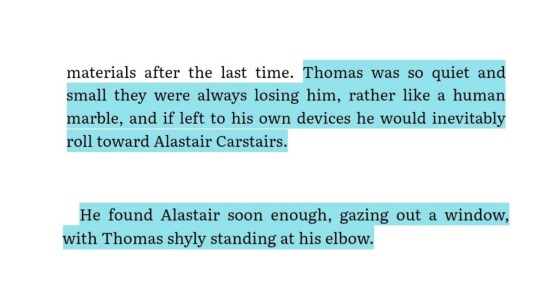
Chain of Gold
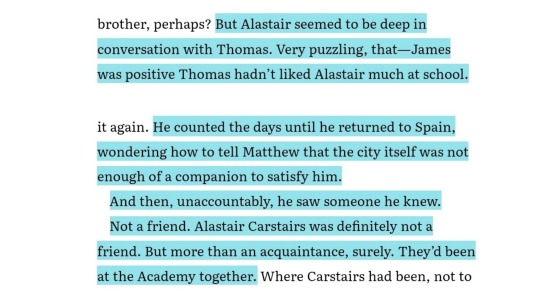
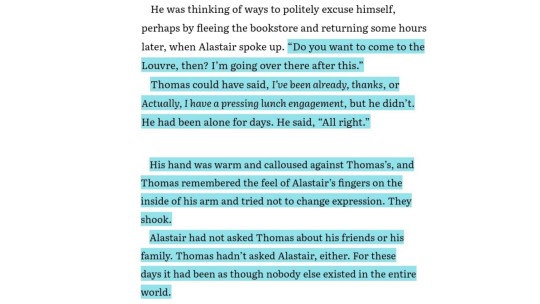
Chain of Iron
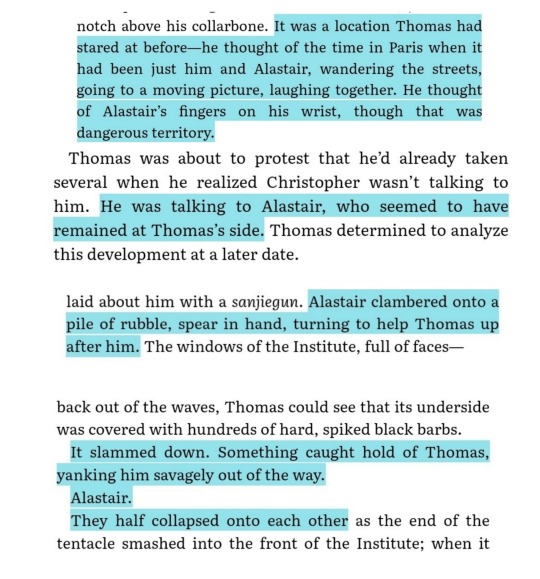
Chain of Thorns

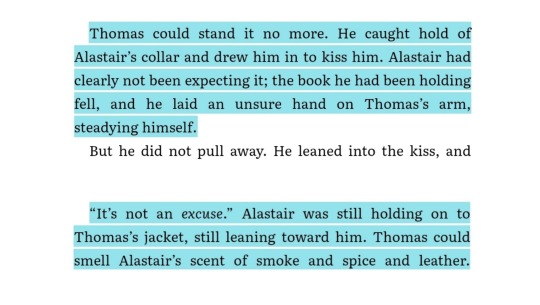



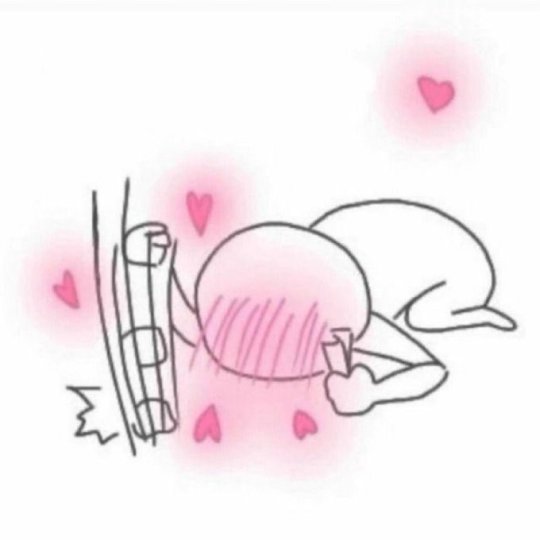
#they ate#chain of thorns spoilers#chot spoilers#chain of thorns#chot#thomas lightwood#alastair carstairs#thomastair#the last hours#tlh#chain of gold#chain of iron#chog#choi#tales from the shadowhunter academy#tftsa#cast long shadows
554 notes
·
View notes
Text
rereading chog in preparation for chot and can I just say this is so funny to me;
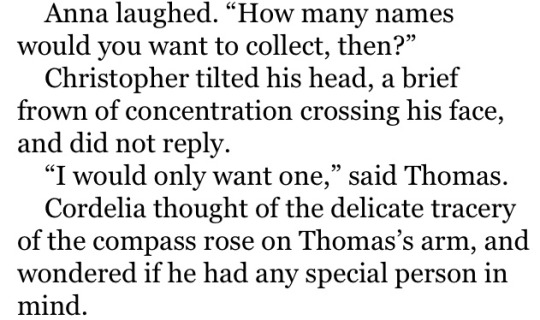
like Cordelia 😭 the only reason you or anyone else there saw Thomas' tattoo (even though Lucie asked!!) was because Alastair did. like no hesitation either, just rolled up his sleeve so Alastair could see it. and like the last time you were Anna's flat, she pointed out that Thomas had never said anything bad about Alastair even though all his friends did. and there was also the picnic where you noticed him acting differently when Alastair was brought up etc etc. Thomas is completely unsubtle, hes not exactly keeping this a secret. that "special person" is your brother! its not hard to figure out 😭
#this is rambly but idc#it's midnight and I'm allowed to be#tumblr is like a diary to me#im writing in pink glitter gel pen about my blorbos as I lie in bed kicking my legs and giggling to myself#thomas lightwood#cordelia carstairs#alastair carstairs#chain of gold#chog#the last hours#tlh#tsc#the shadowhunter chronicles#thomastair
132 notes
·
View notes